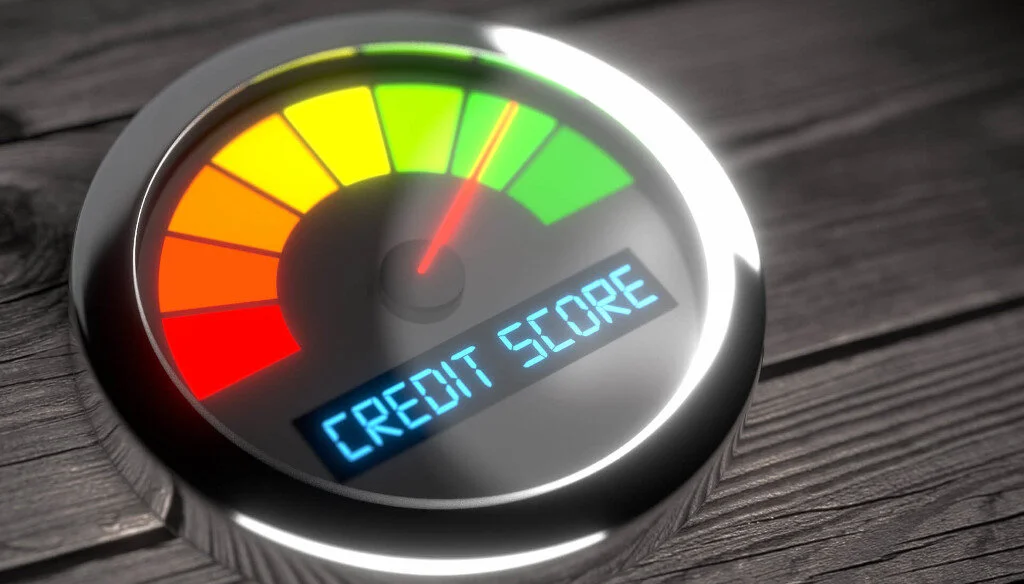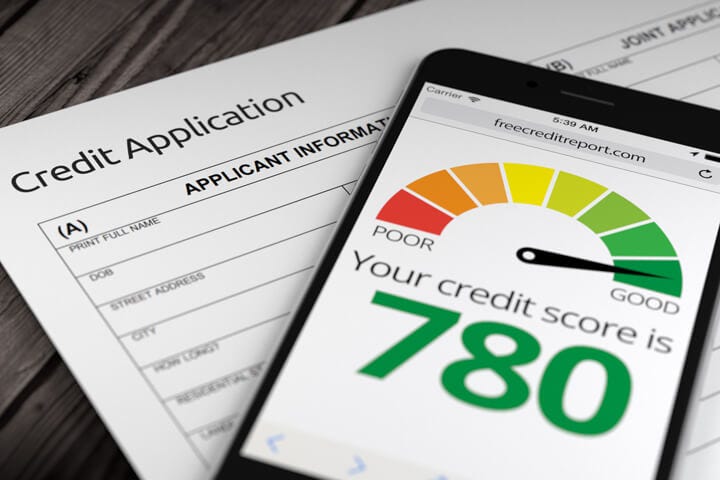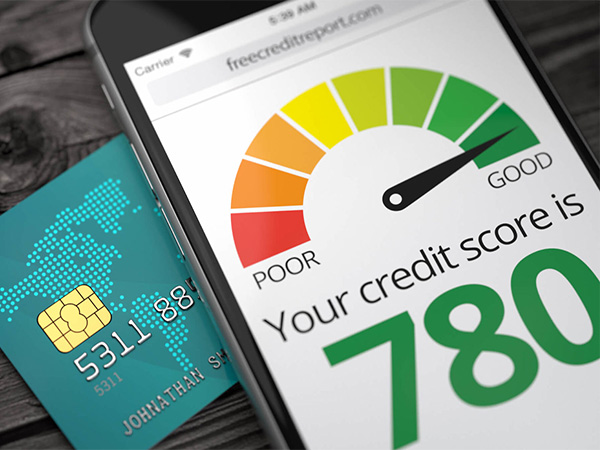
Table of Contents
Understanding Credit Scores and How to Improve Them: Rank Up Revolution
Understanding Credit Scores and How to Improve Them: In today’s financial world, your credit score is more than just a number — it’s a powerful three-digit summary of your financial behavior and trustworthiness. Whether you’re applying for a loan, getting a new credit card, renting an apartment, or even applying for a job, your credit score can play a crucial role. Yet, many people don’t fully understand what a credit score is, how it’s calculated, or how to improve it.
Welcome to the Rank Up Revolution — your comprehensive guide to mastering credit scores and taking control of your financial future.

What Is a Credit Score?
A credit score is a numerical representation of your creditworthiness. It’s based on the information in your credit report and is designed to predict how likely you are to repay borrowed money on time.
In most cases, credit scores range from 300 to 850. The higher the score, the better.
Here’s a general breakdown:
- Excellent: 800–850
- Very Good: 740–799
- Good: 670–739
- Fair: 580–669
- Poor: 300–579
Most lenders use credit scores to evaluate risk. A higher score means less risk for lenders, often resulting in better interest rates and loan terms for you.
Why Do Credit Scores Matter?
Your credit score influences many areas of your financial life:
- Loan approvals: Mortgage, auto loan, personal loan approvals hinge heavily on your score.
- Interest rates: A better score usually means lower rates — which saves you thousands over time.
- Credit card approvals and limits: A higher score gives you access to better credit cards with higher limits and better rewards.
- Housing: Landlords often check credit to evaluate tenant reliability.
- Employment: Some employers (especially in finance) review credit as part of the hiring process.
- Insurance premiums: Your score may impact your car or home insurance rates.
Understanding your credit score — and improving it — isn’t just about access; it’s about empowerment.

How Is a Credit Score Calculated?
Most credit scores are based on the FICO® scoring model, though there are others (like VantageScore). The FICO model considers five main factors:
1. Payment History (35%)
This is the most important factor. It reflects whether you’ve paid past credit accounts on time.
Late payments, charge-offs, collections, and bankruptcies hurt your score the most.
2. Credit Utilization (30%)
This measures how much credit you’re using compared to your available credit.
Formula:
Credit Utilization = Total Credit Card Balances / Total Credit Limits
Experts recommend keeping your utilization below 30%, and ideally under 10% for optimal scoring.
3. Length of Credit History (15%)
Longer credit histories improve your score, especially if they include a consistent record of on-time payments.
4. Credit Mix (10%)
Having a variety of credit types — credit cards, auto loans, mortgages, student loans — shows lenders you can manage multiple forms of credit responsibly.
5. New Credit (10%)
Opening several new accounts in a short period signals risk. Each new inquiry can slightly lower your score.
Common Credit Score Myths (Debunked)
Before diving into how to improve your score, let’s clear up a few misconceptions:
- Myth: Checking your own credit hurts your score.
Fact: It doesn’t. Soft inquiries (like checking your own report) don’t affect your score. - Myth: Closing old accounts improves your credit.
Fact: Closing accounts can actually hurt your score by reducing your total available credit and shortening your credit history. - Myth: You need to carry a balance to build credit.
Fact: You can build excellent credit by paying off your balance in full each month. - Myth: Credit repair companies are your only option.
Fact: You can improve your credit on your own, for free.
Rank Up Revolution: How to Improve Your Credit Score
Improving your credit score is a journey — but with the right steps, anyone can make real progress. Here’s your step-by-step plan to boost your score and join the Rank Up Revolution.
1. Check Your Credit Reports
Start by pulling your credit reports from all three major credit bureaus: Equifax, Experian, and TransUnion. Review them carefully for errors such as:
- Incorrect balances
- Accounts that don’t belong to you
- Late payments that were actually paid on time
- Duplicate accounts
- Outdated negative information
If you find an error, dispute it immediately. Corrections can lead to a noticeable boost in your score.
2. Make All Payments On Time
Set reminders, use autopay, or schedule calendar alerts — just don’t miss payments. One 30-day late payment can drop your score significantly and linger on your report for up to seven years.
If you’re struggling, consider:
- Asking lenders for a new due date that aligns better with your cash flow
- Setting up minimum automatic payments to avoid accidental misses
- Talking to creditors about hardship programs
3. Pay Down Existing Debt
Credit utilization is a huge factor. If your credit cards are maxed out, focus on paying them down.
Tips:
- Tackle high-interest cards first (avalanche method)
- Or start with the smallest balance (snowball method) for motivational wins
- Make extra payments when possible
- Use windfalls (tax refunds, bonuses) to knock down balances
4. Increase Your Credit Limits
If you have a solid history with a credit card issuer, ask for a credit limit increase. If your balance stays the same, your utilization ratio improves instantly.
Example:
You owe $1,000 on a card with a $2,000 limit (50% utilization). If the limit is increased to $4,000, your utilization drops to 25%.
Just make sure not to increase your spending with it.
5. Don’t Close Old Accounts
Even if you’re not using a card, keeping older accounts open benefits your credit age and total available credit.
Instead of closing, consider:
- Using the card once every few months for a small charge
- Setting a recurring subscription (like Netflix or Spotify) and paying it off immediately
6. Limit New Credit Applications
Each hard inquiry can drop your score by a few points. Too many inquiries in a short period can signal you’re a higher risk.
Pro Tip: When shopping for a loan (like a mortgage or car loan), multiple inquiries within a short window (usually 14–45 days) are counted as one for scoring purposes.
7. Use a Secured Credit Card or Credit-Builder Loan
If your credit is low or nonexistent, secured credit cards and credit-builder loans can be powerful tools.
- A secured credit card requires a deposit (usually $200–$500) that becomes your credit limit. Use it responsibly, and it reports to the credit bureaus like any other card.
- A credit-builder loan lets you build payment history by paying into a savings account over time — you get the money after completing the payments.
8. Become an Authorized User
Ask a trusted family member or friend with good credit if you can be added as an authorized user on their credit card.
This doesn’t mean you have to use the card. Their positive payment history and credit limit can appear on your credit report and boost your score.
9. Use Experiential Credit Options
Some newer scoring models consider payments that traditional models ignore — such as rent, phone bills, or utilities.
You can opt in to programs that report these payments to credit bureaus to enhance your credit profile.

How Long Does It Take to Improve Your Credit?
Improving your credit isn’t overnight, but progress can be steady:
- Quick wins (1–3 months): Paying down cards, fixing errors, becoming an authorized user
- Medium-term improvements (3–6 months): On-time payments, lowered utilization, increased limits
- Long-term gains (6–12+ months): Building a solid payment history, diversifying credit types
The key is consistency. Credit scoring is like a trust exercise — the longer you demonstrate responsible habits, the more lenders trust you.
Credit Score Improvement: What NOT to Do
Avoid these mistakes:
- Ignoring your credit reports: Errors can cost you points unnecessarily.
- Making only minimum payments: Interest piles up and keeps balances high.
- Applying for multiple cards at once: Triggers multiple hard inquiries.
- Co-signing loans you can’t cover: You’re on the hook if the primary borrower defaults.
- Using payday loans: They don’t help your credit and can trap you in cycles of debt.
Final Thoughts: Rank Up Revolution
Credit isn’t just for the wealthy. It’s a tool that can help anyone gain access to opportunities — if used wisely.
You don’t need to be perfect. You just need to be proactive.
🔍 Credit Score Basics
1. What is a credit score?
A credit score is a three-digit number that represents your creditworthiness based on your credit history. Lenders use it to assess the risk of lending you money.
2. What’s the range of a typical credit score?
Most credit scores range from 300 to 850, with higher scores indicating better credit health.
3. What is considered a good credit score?
A score of 670 or higher is generally considered good. Above 740 is very good, and 800+ is excellent.
4. What is a bad credit score?
Scores under 580 are typically viewed as poor and may limit your access to loans or result in higher interest rates.
5. How often do credit scores update?
Credit scores can update as often as every 30 days, depending on when lenders report your activity.
🧠 Understanding Credit Score Factors
6. What affects my credit score the most?
Payment history is the most important factor, making up 35% of your FICO score.
7. What is credit utilization?
It’s the percentage of your credit limit you’re using. Keeping it under 30% helps improve your score.
8. Does checking my credit score hurt it?
No. Soft inquiries (like checking your own score) have no impact.
9. What is a hard inquiry?
A hard inquiry happens when a lender checks your credit for a loan or card application. It may slightly lower your score.
10. How long do hard inquiries stay on my report?
They stay for 2 years, but their impact typically fades after a few months.
🏗️ Building and Rebuilding Credit
11. How can I build credit from scratch?
Start with a secured credit card, become an authorized user, or get a credit-builder loan.
12. How long does it take to build credit?
You can start building a score in about 3–6 months of responsible credit activity.
13. What’s the fastest way to improve a credit score?
Pay down credit card debt, make on-time payments, and dispute any report errors.
14. Can I fix my credit score myself?
Yes! Most people can improve their credit on their own without paying a repair company.
15. Do credit repair companies work?
Some are legitimate, but many overpromise. Always research thoroughly before hiring one.
💳 Credit Cards and Credit Limits
16. Does having more credit cards help or hurt my score?
It can help if managed responsibly. More cards increase your available credit and can lower utilization.
17. Should I close unused credit cards?
Not usually. Closing cards may hurt your score by reducing your available credit and shortening your history.
18. How can I increase my credit limit?
You can request a limit increase through your card issuer, especially if your income or credit score has improved.
19. Does carrying a balance help my score?
No. You don’t need to carry a balance to build credit. Paying in full is better for your score and wallet.
20. Is it bad to max out my credit card, even if I pay it off?
Yes. High utilization, even short-term, can temporarily lower your score.
🧾 Credit Reports and Monitoring
21. How do I get my credit reports?
You can request them from the three major bureaus: Equifax, Experian, and TransUnion.
22. How often should I check my credit?
At least once a year — ideally every few months — to monitor for errors or fraud.
23. Can errors on my report hurt my score?
Absolutely. Incorrect information, like late payments or duplicate accounts, can lower your score.
24. How do I dispute an error on my credit report?
Contact the credit bureau directly with documentation. They usually have 30 days to investigate.
25. Is credit monitoring worth it?
It can be helpful, especially if you’re rebuilding or watching for fraud. Many services offer free tools.
🏠 Loans, Mortgages, and Renting
26. What credit score is needed for a mortgage?
Most conventional loans require at least 620–640, but the best rates are for scores above 740.
27. Will applying for a mortgage hurt my score?
It results in a hard inquiry, but multiple mortgage inquiries within a short window (usually 14–45 days) are counted as one.
28. Can I get a car loan with bad credit?
Yes, but expect higher interest rates or the need for a co-signer or larger down payment.
29. Do landlords check credit scores?
Many do. A poor score might lead to rejection or require a co-signer or larger deposit.
30. Can my rent payments help my credit?
Only if reported to the credit bureaus. Some services allow you to report rent for a credit boost.
🔄 Score Recovery and Long-Term Management
31. How long does negative information stay on my report?
Most negative marks (like late payments) stay for 7 years. Bankruptcies can last up to 10 years.
32. Can I remove late payments from my report?
If it’s a one-time mistake, you can try a “goodwill letter” asking the lender to remove it.
33. How long after paying off debt does my score improve?
You may see changes in 30–60 days, depending on the reporting cycle.
34. Will paying off a collection account help my score?
Yes. Some scoring models ignore paid collections, and it shows responsibility.
35. Is it ever too late to fix your credit?
Never. No matter your starting point, consistent positive habits can improve your score over time.
Also visit:-


